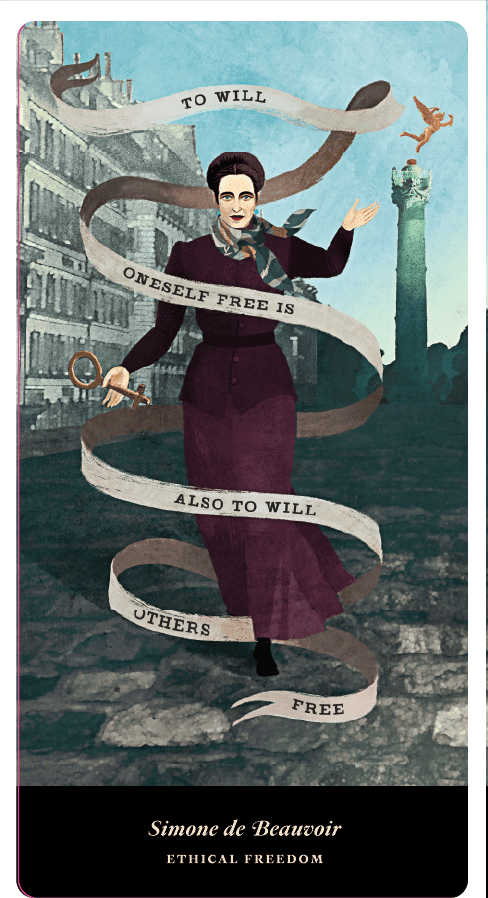Simone de Beauvoir | To Will Oneself Free Is Also to Will Others Free 1908 FRANCE 1986 FRANCE
Simone de Beauvoir is a philosopher of ethical freedom. She teaches us to understand freedom as a way to open up new worlds for ourselves and others. For de Beauvoir, freedom is not doing what we want when we want. Freedom is the ability to cast ourselves out into an open future rich with possibilities. And because we are always in the world with others, she conceives of individual freedom as inseparably bound by the freedom and liberation of others. Others set the stage for our actions: likewise, we provide others with a world within which to act. We do not create ourselves from nothing. Our freedom is always unfolding within a web of relations with others. This is why she asks us to act in ways that expand the horizon of possibilities for ourselves as well as for others. To open up the future is what it means to be ethical for de Beauvoir. “To be free is not to have the power to do anything you like; it is to be able to surpass the given toward an open future; the existence of others as a freedom defines my situation and is even the condition of my own freedom.”

